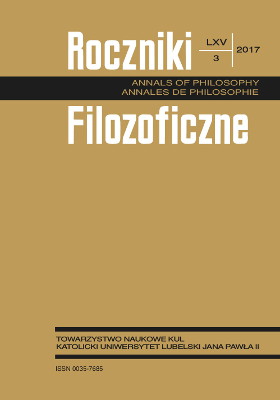Eriugena’s De Praedestinatione: The Project of Rationalisation of Faith and Its Critics
Eriugena’s De Praedestinatione: The Project of Rationalisation of Faith and Its Critics
Author(s): Agnieszka KijewskaSubject(s): Philosophy, History of Philosophy, Philosophy of Middle Ages
Published by: Towarzystwo Naukowe KUL & Katolicki Uniwersytet Lubelski Jana Pawła II
Keywords: predestination; free will; rationalization of the faith; vera philosophia; vera religio; Eriugena; Gottschalk of Orbais; Boethius; Martianus Capella
Summary/Abstract: The De praedestinatione of John Scottus Eriugena was intended as a contribution to a controversy sparked off by Gottschalk of Orbais concerning predestination. This work met with trenchant criticism and condemnation even though it firmly rejected Gottschalk’s views on double predestination. One of the reasons for this hostile reception was undoubtedly Eriugena’s singular conception of the freedom of will, a subject I intend to discuss elsewhere. In the present text, however, I would like to focus on another important cause of the rejection of Eriugena’s treatise. In my opinion, this second reason was a pre-scholastic project of rationalization of the faith in the spirit of St. Augustine and using the method of Boethius and Martianus Capella. It would appear that Eriugena’s contemporaries were not ready for the favorable reception of his idea of the vera philosophia that was the same as the vera religio. Yet, as Goulven Madec once rightly observed, the vera ratio of Scotus was closely bound up with the lux mentium which is nothing else than God revealing himself in the human language of the Scriptures. Eriugena’s masters and models were the Church Fathers and his intention was to continue their efforts to achieve an understanding of the faith in his own, personal way.
Journal: Roczniki Filozoficzne
- Issue Year: 65/2017
- Issue No: 3
- Page Range: 71-98
- Page Count: 28
- Language: English

